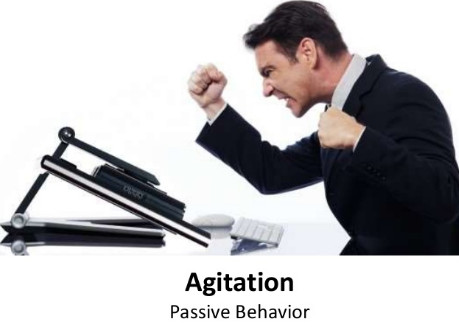Article Contents ::
Agitation General View
- Agitation refers to a state of hyperarousal, increased tension, and irritability that can lead to confusion, hyperactivity, and overt hostility.
- It can arise gradually or suddenly and last for minutes or months
- Agitation alone merely signals a change in the patient’s condition.
- Whether it’s mild or severe, agitation worsens with increased fever, pain, stress, or external stimuli.

Agitation History and Physical Examination
- Determine the severity of the patient’s agitation by examining the number and quality of agitation-induced behaviors, such as emotional lability, hyperactivity, and hostility, confusion, memory loss.
- patient or a family member, including diet, known allergies, and use of herbal medicine.
- Ask about alcohol intake. Obtain the patient’s baseline vital signs and neurologic status for future comparison.
Agitation Medical Cause’s
- Alcohol withdrawal syndrome. Mild to severe agitation occurs in alcohol withdrawal syndrome, along with hyperactivity, tremors, and anxiety.
- Dementia. Mild to severe agitation can result from many common syndromes, such as Alzheimer’s and Huntington’s diseases. The patient may display a decrease in memory
- Anxiety. Anxiety produces varying degrees of agitation, findings include nausea, vomiting, diarrhea, cool and clammy skin, frontal headache, back pain, insomnia, depression, and tremors.
- Drug withdrawal syndrome. Mild to severe agitation occurs in drug withdrawal syndrome. Related findings vary with the drug, but include anxiety, abdominal cramps, diaphoresis, and anorexia.
- opioid or barbiturate withdrawal, a decreased level of consciousness (LOC), seizures, and elevated blood pressure, heart rate
- Hypersensitivity reaction. Moderate to severe agitation appears, possibly as the first sign of a reaction,agitation occurs rapidly along with apprehension, urticaria or diffuse erythema, warm and moist skin, paresthesia, pruritus, edema, dyspnea, wheezing, stridor.
- Hypoxemia. Beginning as restlessness, agitation rapidly worsens.
- Increased intracranial pressure (ICP). Agitation usually precedes other early signs and symptoms, such as headache, nausea, and vomiting.
- Post-head trauma syndrome. Shortly after, or even years after injury, mild to severe agitation develops.

